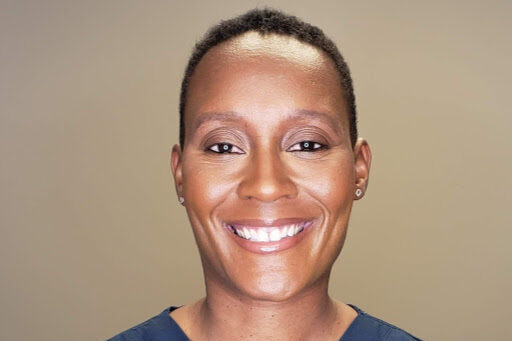Your Poor Health Is Costing You Big Time
Dr. Tiffany T. Butler | January 12, 2023 | Read Time: 9 minutes
“Sometimes poor health is unavoidable. However, poor health can also arise from years of harmful habits and neglect.” (Tamara Moffett)
When we hear the term poor, most people think of not having money. However, a person can have an abundance of money, and still be poor in other areas of their life such as – physical health, relationships, and mentality. For the sake of this discussion, let us define poor as the following: poor is a state or condition of having minimal or lack of resources. Valuable resources are essential to the fulfillment of basic human needs such as acquiring food, water, shelter, and clothing. Once your basic human needs are satisfied you can then utilize the same resources to enhance other areas of life such as – creating and developing meaningful relationships (social health); contributing to society through services and products (intellectual health); managing stress is a positive way (mental health); and to learn, adapt, and grow (spiritual health).
Therefore, if a person is in a poor health state, they lack the ability to satisfy the requirements to be healthy and will often find it hard to excel in other areas of life.
Poor health can result from one or more factors including, but not limited to:
- lack of finances
- lack of health education
- lack of health literacy
- lack of access to healthcare
- inability to pay for healthcare services or products, even if it is available
- neglect
- poor health decision
- sedentary lifestyle (such as the lack of exercise)
- lack of proper nutritional intake
- lifestyle habits (such as tobacco use, alcohol consumption, and recreational drug use)
Most of us were born in good health. We are endowed with the innate ability to heal, repair, and maintain body function. When we deviate from our natural state of health, we experience complications. If we continue to experience complications in the mind and/or body, we move into a condition of poor health. In other words, it becomes difficult to survive and thrive in the world.
Poor health is the state or condition of having minimal resources that are necessary to survive, adapt, and thrive in an environment. If you think the price of being healthy is expensive, then you have no idea the heavy price you will pay for having poor health!
Let us see what it cost – the time, money, and energy – to have poor health.
HOW MUCH DOES POOR HEALTH COST?
#1: Missed Days from Work
People who experience chronic pain are more likely to call out from work, use sick days, or take excessive leave. If your employer is like most employers, too many missed days or callouts can put you at risk for job termination, which can lead to unemployment. We all must work to support ourselves (and dependents); however, working while you are experiencing pain, illness, or sickness may result in poor job performance and is likely to increase your risk of acquiring an injury on the job.
#2: Get Sick More Often
People who have poor health are likely to experience illness and pain more often than those with good health. As stated previously, poor health can result from numerous factors. Our personal choices can lead to our own destruction. We have a choice in what we eat. As adults, we choose what we eat, when we eat, and how much we eat. In fact, the overconsumption of food has caused a great dilemma, obesity. Obesity, the excessive accumulation of body fat, is affecting both adults, children, and adolescents at an alarmingly high rate. Check out my other blog post, Feel Better Through Weight Management to learn how you can improve your health through weight management.
#3: Increase Medical Expenses
Poor health can result in more doctor visits and healthcare treatment. Since those who have poor health are at a greater risk for developing chronic health conditions such as diabetes and heart disease, they are more likely to seek medical attention. The increase in medical expenses causes unwanted stress and a financial burden on everyone, including family members. In addition, research shows that those who have poorer health also experience financial hardships. Those with poor health tend to choose the wrong health plan, which does not provide the best coverage for their individual health needs and wants. Furthermore, people who have poor health often will delay seeking treatment, due to an inability to afford healthcare services, which can make their condition worse, leading to more medical expenses in the future.
#4: Negative Impact on Social Life and Relationships
If you live with someone or know someone who has multiple chronic health conditions, you have witnessed firsthand the impact their health has on the people around them. Whether it is taking them to their appointments, picking up their prescription, or helping them perform tasks such as – grooming, cooking, and cleaning. Research shows that caregivers are also at risk for developing chronic health conditions due to neglecting their own personal healthcare needs, to take care of someone else. You can see how this can have a negative impact on relationships.
Health is dynamic. You can always move from one condition to the next. Education is the key to change. True power is knowledge. Knowledge is acquired through education, comprehension, and the application of wisdom. If you want to improve your health and the lives of others, stay tuned for my next post on The Cost of Good Health. It is going to be a good one 😊
Dr. Tiffany T. Butler (aka “The Pain Doctor”) is a chiropractor, author, and entrepreneur. She leads Harmonious Living Chiropractic: Fitness & Wellness Center, a pain management practice, in offering healthcare solutions that focus on patient-centered care. Her team consists of individuals who are passionate about improving patient outcomes by providing chiropractic care, in conjunction with therapeutic procedures. Their services have helped hundreds of people find pain relief and improved their quality of life. To learn more about Dr. Butler visit https://www.drtiffanybutler.com/dr-butler/ Connect with Dr. Butler on social media #drtiffanybutler


